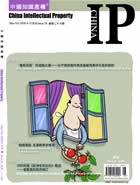
China’s Internet world was rocked by an arrest weeks following August 18, 2008. The person detained, Hong Lei, was author of “Tomato Garden”, a revised version of Windows XP operation system, in other words, a software pirate. The incident found its way into special reports by almost all major online media, commentaries by official media and hot debates among netizens. It seems quite rare in the Internet history that a pirate maker’s fate could draw so much attention.
As the publicly acclaimed Windows XP revision, which was widely used, “Tomato Garden”, despite government crackdowns on piracy, had led a peaceful life five years after its birth, and gained soaring dissemination as a result of users’ support. During this period, more and more profit chains involved, some originally illegal, others ambiguous from their entanglement with illegal deals. As on-lookers, we cannot but ask: in what specific circumstances grew such a “tomato”?
This issue’s Special Report casts eyes on the significant “Tomato Garden” incident and probes from many facets the overall environment cultivating the “tomato”. We invited three guests, Zhou Xiaobing, an intellectual property judge of Beijing No. 2 Intermediate Court, and Mark S. Lee and Borchien Lai, lawyers from the Los Angeles office of Manatt, Phelps & Phillips LLP to discuss, from Chinese and American laws, the legal situations that will face people involved in “tomato” profit chains, thus providing a reference for interested readers.
|
Copyright © 2003-2018 China Intellectual Property Magazine,All rights Reserved . www.chinaipmagazine.com 京ICP备09051062号 |
|
|



